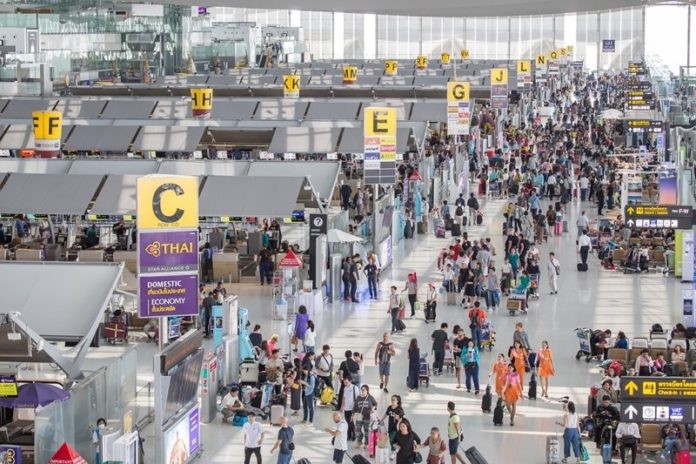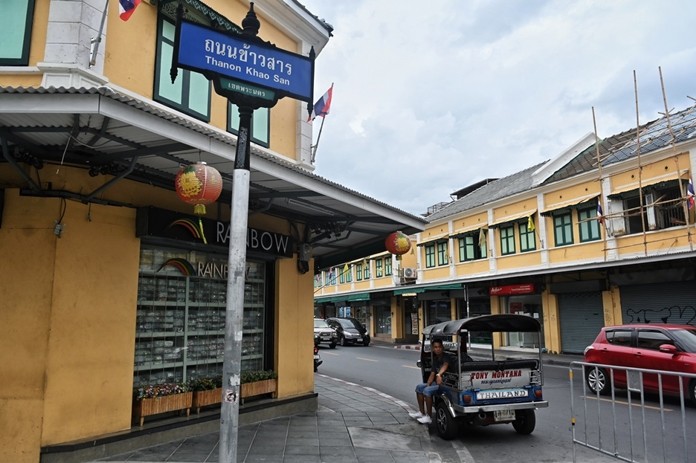
An unknown number of foreigners – estimates vary from 100,000 to 500,000 – have benefitted from the Thai government’s visa amnesty which ends its six months validity on September 26 upcoming. It’s a Saturday by the way.
The Thai immigration website made it pretty clear last month that there will be no automatic extension after the due date, stating clearly that those without valid visas must leave or submit an application for extension, to be considered on a case by case basis. Most foreigners who needed the “grace” period appear to have left Thailand by now as flights to many destinations have been expanded. The numbers remaining are probably in the tens of thousands and will shrink further as September 26 approaches.
There are two groups who can apply at their local immigration office for an extra30 days on payment of the usual 1,900 baht visa fee: those too sick to travel (requiring detailed hospital documentation) and those who can obtain a letter from their embassy because travel for a particular individual is impossible or very difficult. The Australian embassy, after initially refusing to issue such letters, has backtracked with the Bangkok-based ambassador saying that he realizes travel to Australia is still difficult for many. Indeed, the Australian embassy website suggests that a letter will be issued to any resident submitting by email his or her passport biodata page.
The British and American embassies have also backtracked and fallen into line even though flights are available. Sources say there are several reasons for the change of heart, including the reality that some British and American nationals do not live in the country of their passport but have longstay or residency permits in countries such as Laos and Malaysia which are still in a near-comprehensive travel lockdown. Reports suggest that these letters are indeed assisting foreigners in gaining extra time.
Another plan of action for aliens with a problem after September 26 might be to apply for a “new” 90 days non-immigrant visa at their local immigration office. As such cases are considered on a case-by-case basis by individual officers, no comprehensive data is available. Some foreigners have said that they succeeded in obtaining a new 90 days visa on family, compassionate grounds by providing the relevant documentation of marriage or child financial dependency. It’s hit and miss though to judge from feedback.
Others have claimed to have obtained a “volunteer” visa for 90 days, although it is not totally clear what they are volunteering for. In some parts of Thailand, visa agents via the internet are claiming to obtain these visas on behalf of clients, but (you are told later) at premium prices as high as 75,000 baht. If these reports are true, very few individuals in the affected categories would be likely to afford the visa. Or even have the cash to hand.

Guest workers from Laos, Cambodia and Mynamar – principally in the construction and retail industries – have a separate immigration status in Thailand and come under the auspices of the Foreign Worker Employment Agency and the Memorandum of Understanding (MOU) between participating countries. September 26 has nothing to do with them. There is currently a shortage of these workers because land borders remain semi-closed and Thailand insists on a 14-days quarantine period as well as prior registration through the internet or by email.
There are one or two final categories of foreigners in an increasingly tight spot. Anyone whose visa expired before March 26, the starting date of the amnesty, is now on very substantial overstay if they have remained in the shadows. Sooner or later, they inevitably face prosecution, deportation (when somebody produces the cash for the airfare) and black list status.
Another group are illegal workers, for example from China or Vietnam, who never had proper documentation in the first place and made their way to Thailand through a third country such as Cambodia. The collapse of the Thai foreign tourist industry means that there is no demand at present for illegal immigrants in any case. Eventually, they will be rounded up by the Thai immigration service which now has advanced contact technology, including the trackingof mobile phone users. The miscreants, that is.
It follows that the ending of the visa amnesty period after September 26 is a good deal more complicated than at first may appear. But that’s nothing new in the world of Thai visas. As you well know.
 |
 |
 |





